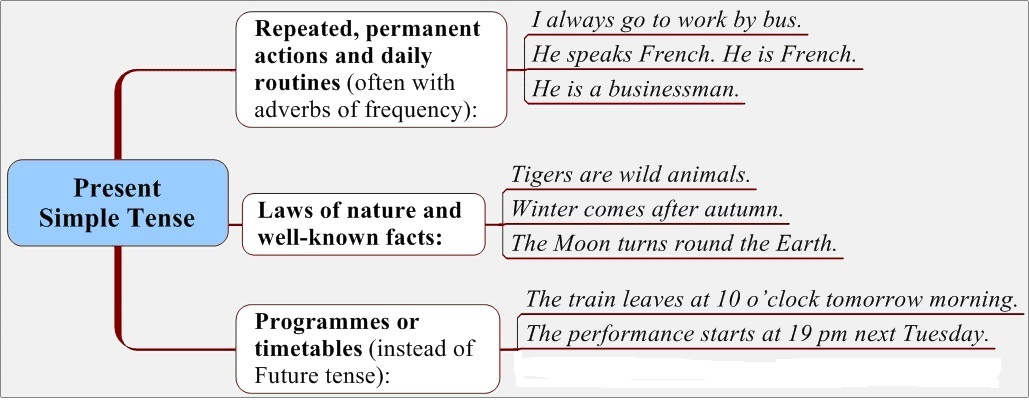Посібник з інтенсивного навчання англійської мови (для студентів внз спеціальності початкова освіта) Частина перша Київ 2013 удк ббк
 Скачать 5.32 Mb. Скачать 5.32 Mb.
|
|
Task 3: Read the letters given at random: M q H E j g m P b t X s T w V u y W Q S p v L N o K h R O h C N f I k D J z a i B l d F c A Y r I a G j R q C s P Help: Grammar reference – граматична довідка Task – завдання Several - декілька Remember - пам’ятати Practice – практика, практикувати Letter – літера Study –навчання, вивчати At random - наугад Appendix - додаток Table - таблиця Surname - прізвище Spell – назвати по буквах Pronounce – вимовляти Double – подвійний, подвоювати Etc - та інше (скорочення від etcetera) Sentence – речення
The English and Ukrainian languages belong to different language families and differ much. Study, for example, the English rules of pronunciation and reading: English sounds, both consonants and vowels, are pronounced distinctly, with a tension. It provides a rhythmical reading and a definite place of a stressed vowel in the mouth. The position of lips and a tongue is important. Also there is often no correlation in English between sounds and spelling. Study the example below: ‘ou’can be pronounced in a number of different ways: cloud, pour, though, through, journey, enough, double, cousin etc. 1). Every vowel (6 of them) – a, e, i (y as a vowel), o, u has at least two types of reading in a stressed position. The 1st one is an alphabetic reading when the stressed syllable is open. Study the schemes: - vowel + vowel ( e.g. bee, sea, teacher, people, indeed, goal, road, due); - vowel + consonant + vowel ( e.g. plane, tube, rice – final “e” is not read) The 2nd type: the stressed syllable is closed and the rules of reading are different in the schemes: - vowel + consonant (e.g. rag, rid, red, rod, rug); - vowel +2(3) consonants + vowel (e.g. apple, letter, little, important.)  Note: The English language has been historically connected with different European languages. As a result, a number of synonyms is great (e.g. to begin, start, commence have the same translation – “починати”). Also it led to different rules of reading (e.g. English, are, give, never, have, every, friend, opinion etc.) 2). Every sound of a stressed vowel has its place in a mouth. There are narrow (upper) and open (low) sounds (as in the words: men-man, pen-pan, bed-bad, together-gather, red-rabbit); front, middle, back sounds (lake-luck-lock; cake-cut-caught); short and long ones (duck-dark, mid-mead, pick-peek, pitch-peach, ship-sheep, rid-read, did-deed, this-these, hut-heart). To differentiate the sounds or read words in the dictionary correctly we need to know transcription signs (signs of sounds). Practice – English in use Task: Read the words and sentences
Help: Transcription – транскрипція Distinct – чіткий Tension – напруга Mind – мати на увазі Vowel – голосна Stressed syllable – ударний склад Consonant – приголосна Such – такий According to – згідно Memorize – запам’ятовувати Mouth - рот Narrow – вузький Upper – верхній Front – передній Middle – середній Back – задній Sign – знак Divide – ділити, розділяти Attentive – уважний Following – наступний 2. Grammar 2.1. Word order We don’t think much about the word order in our native language. But we follow it in the English language. The scheme of every English affirmative sentence is: subject + predicate. e.g. I like jazz.He is busy. My friends and I walk in the park every Sunday.
2.2. Vocabulary The English language has the same parts of speech as the Ukrainian one. But the English verbs, nouns and adjectives don’t inflect. The right word order and the usage of prepositions help to understand the sence of any sentence. Learn as many English words as possible and follow the correct word order. Then you will speak to foreigners and they will understand you.  2.3. Types of sentences • Imperative: Stand up! Don’t stand up!
Help: Scheme –схема Subject - підмет Predicate – присудок Speech – мова Inflect – змінювати закінчення, відмінювати Make up - складати Imperative - наказовий Affirmative – стверджувальний Interrogative - питальний Compare – порівняти Easy – легкий Guess – здогадатися Meaning – значення 2.4. Auxiliaryverbs In the Ukrainian language, questions are formed with the help of intonation. English questions and negative sentences are formed with the help of auxiliary verbs: forms of a verb to be, modal verbs, to do, etc. Study the examples: a). To be ( бути, знаходитись) – its forms in the Present tense are am, is, are. + I am happy. He/ She/ It is happy. You/ We/ They are happy. ? Am I happy? Is he happy? Are you happy? - Yes, I am / No, I am not. - I am not (I aren’t) late. He is not (isn’t) late. We are not (aren’t) late. b). Modal verbs: can (could), may (might), must (had to), will (would), shall (should) etc. Modal verbs do not take a suffix (-s, -ing or –ed). + I can play the guitar. (He can play the guitar.) ? Can you play the piano? – Yes, I can. / No, I cannot (can’t.) - I can’t play the piano. Or: You must listen to me. (Must I do it? – Yes, you must / No, you mustn’t.) Or: You may stay here. (May I do it? – Yes, you may. But: No, you mustn’t.) c). If there is neither form of the verb to be or a modal verb, do (does in present simple, the third person singular after the pronouns he, she, it) is used to make up a question or a negative sentence. + I want to call you later. ? Do you want to call me later? – Yes, I do. / No, I do not ( don’t.) - I don’t want to call you. OR: + He wants to see you. ? Does he want to see me? – Yes, he does. / No, he doesn’t. - He doesn’t want to see you. Practice – Grammar in use Task 1: Make up interrogative and negative sentences. e.g. He is buzy. Is he buzy? He is not (isn’t) buzy. She is beautiful. Bill lives in Germany. It is a great day for a walk. Nicole is married. He tells the truth. We play tennis every Saturday. I can do it myself. Task 2: Make up sentences. e.g.: every, water, day, drink, I, much – I drink much water every day.
2.5. The Present Simple Tense There are sixteen tenses in the English language. All of them add to the beauty of it and nuances of communication. (Compare: In the Ukrainian language there are three tenses: present, past and future.) Revision 1: Study the table of grammar tenses.
The first tense you are going to study and practice is the Present Simple Tense. Revision 2: Study grammar references first then the situations when the present simple tense is used.  Revision 3: Spelling rules in the present simple In the 3rd person singular (after he, she, it) add to the verb:
But: I buy – he buys. Important! As there are different tenses for present, past and future, TIME EXPRESSIONS help to differentiate one from another. Time Expressions, which are used with Present Simple:
 Note: Mind the word order with adverbs of frequency (- Ad.Fr.): Ad. Fr. are used before a main verb but after an auxiliary verb (be, modal verbs – can, may, must and others, do etc.)
Help: Person - особа Singular – однина Tense – час Add - додавати Beauty – краса Communication - спілкування Revise / repeat – повторювати Adverb of frequency – прислівник частоти Permanent action – постійна дія Law of nature – закон природи Well-known –добре відомий Timetable – розклад Instead of – замість Time expression – вираз, який використовується з часом Main – головний Match - підібрати до пари Discription - опис Practice – Grammar in use Task 1: Match the present simple tense to the correct description. 1. The sun rises in the east and sets in the west 2. He always goes to work by train. 3. A seminar starts on Tuesday. 4. The bus leaves in ten minutes. 5. He gets on his horse and quickly rides away.
Task 2: Put the adverbs in brackets in the correct place. 1. You must brush your teeth twice a day (always). 2. Sam likes cereal for breakfast (seldom). 3. Sharon drinks coffee at night (never). 4. Paul doesn’t eat out on Sundays (usually). 5. Do you go to the cinema at the weekend? (often) 6. Jim is on time for work (never). Task 3: Put the verbs in brackets into correct forms of the present simple.
| |||||||||||||||||||||||||||||||
